Weathering the Storm: Preparing Your Special Needs Family for Winter Weather Emergencies
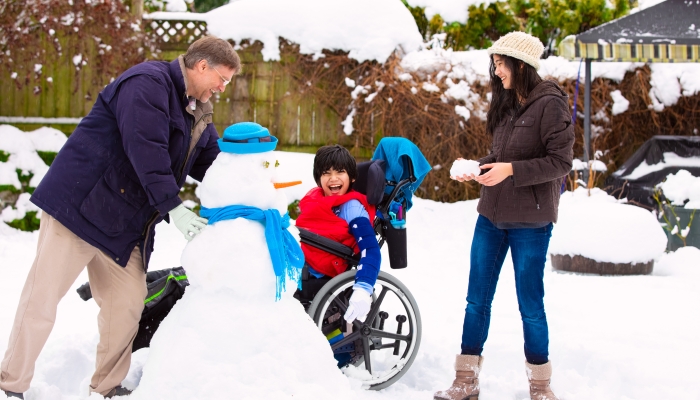
- Winter weather emergencies can include blizzards, snow storms, icy conditions, and freezing temperatures.
- Furthermore, power outages, communication outages, and accidents on the ice are common.
- Preparation is key for keeping your special needs family safe during bad weather events.
- Ensure you stay in contact with your support system during an emergency; you may need help meeting your child’s needs during a weather disaster.
- An emergency kit contains everything you need in an emergency situation.
Winter brings many challenges, especially for vulnerable members of society. If you have children with special needs, you’ll need to plan ahead for winter safety in emergencies. Extreme cold weather, a winter storm, power outages, and getting snowed in are all instances you may need to plan for depending on your location.
Winter preparedness is especially important for people with disabilities who may be more vulnerable to the danger of winter emergencies. When it comes to planning for winter emergencies, special needs are a top consideration. Think about your child’s medical, behavioral, and emotional needs and how you can meet them if you get stuck at home without outside assistance for a few days in bad weather.
Winter Weather Risks
While winter may be beautiful, it can also pose risks to safety. To create a strong winter weather plan, you first need to understand the risks posed by winter weather. The weather events you’re at risk of will depend upon where you live.
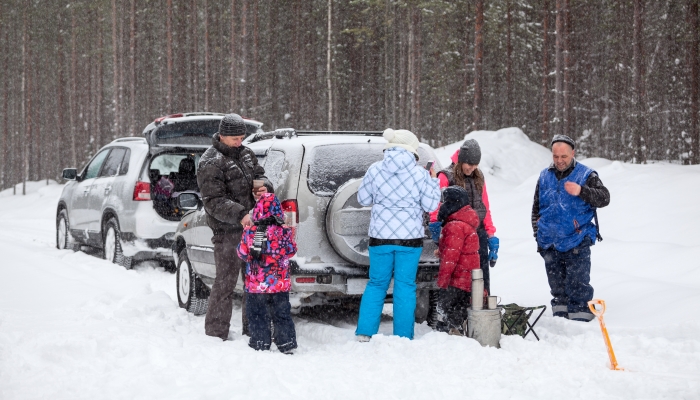
Common Winter Hazards
Here are some winter weather risks to consider:
- A winter storm
- Below freezing temperatures
- Heavy snow
- Icy conditions
These winter weather extremes are also associated with other issues, such as power outages, road traffic accidents, and communication systems going down. If road conditions are bad, people are unable to get to work, and many of the services we rely on can fail to run.
Considerations for Special Needs Families
Unfortunately, many families fail to prepare for emergencies, which leaves them at a disadvantage when disaster strikes. Forward planning can help to cushion your family from the impact of a weather disaster.
A 2017 review11. Stough, L. M., Ducy, E. M., & Kang, D.. Addressing the Needs of Children With Disabilities Experiencing Disaster or Terrorism. Current Psychiatry Reports. 2017;19(4). https://doi.org/10.1007/s11920-017-0776-8 found that “Disaster preparedness interventions and societal changes are needed to decrease the disproportionate environmental and social vulnerability of children with disabilities to disaster and terrorism.”
All special needs families are unique, so you’ll need to consider how your family will be affected by a winter storm. Here are some things you may want to consider:
- Medical help. You may struggle to fill a prescription in bad weather, and the visiting nurse service you rely on may ground to a halt. If your child’s medical equipment relies on power, a power outage may cause serious problems.
- Mobility issues. Slippery, icy pavement, driveways, and roads can further complicate leaving the house with mobility issues. If your child uses a wheelchair, you may need to invest in some winter snow tires that can better handle icy conditions. Other wheelchair winter must-haves can protect your child from the elements during colder weather.
Home Preparation Strategies
Your home is your safe space, so ensure it can protect you from the cold with these winter safety tips.
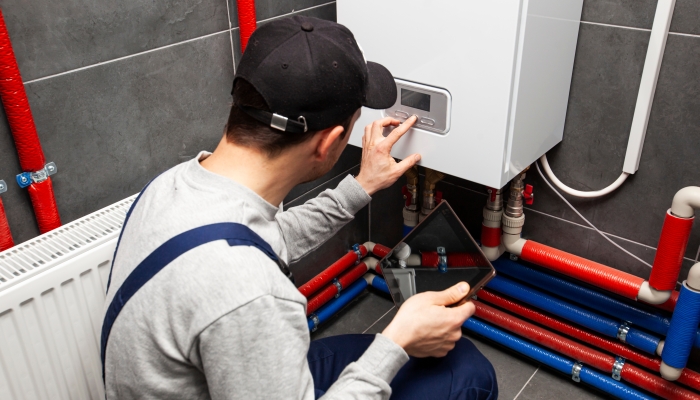
Winterize Your Home
Keeping your home warm can help protect your family’s physical health during the colder months. Prepare your home for the colder months by:
Insulating your home. A poorly insulated home will struggle to retain heat. Not only will this give you high energy bills, but it could also be serious during a cold weather snap if there’s a power outage. You want a home that can retain heat for longer.
There are specialist companies who can visit your home and write up a report with recommendations for simple changes you can make for a more insulated home. They may suggest updating your doors and windows, sealing up any cracks, and adding insulation to problem areas of your home.
Winterproofing your heating. The best time to pay attention to your heating is before you need it. Book your annual service, bleed your radiators, and ensure your pipes are insulated to reduce the risk of frozen pipes during cold snaps.
Checking your fire and CO2 alarms. It’s essential to check your fire and CO2 alarms are in good working order before the winter descends. If you have battery-powered alarms, check the batteries are still working.
It’s also crucial to check that your car is ready for winter. Book a service before the cold weather hits to ensure your vehicle can handle icy roads and cold temperatures. Update your tires if necessary and ensure your car is stocked with emergency supplies, including drinking water and plenty of blankets in case you get trapped in bad weather conditions.
Accessibility and Safety Considerations
In winter emergencies, special needs families need to ensure safe and accessible exits from the house. You should keep a store of salt at home to ensure your driveway is ice-free even when the temperature drops below freezing.
It’s also worth considering escape routes during winter emergencies. For example, if you know a main road near your house usually gets closed during bad weather, you’ll need a backup route to make your getaway.
Create an Emergency Plan
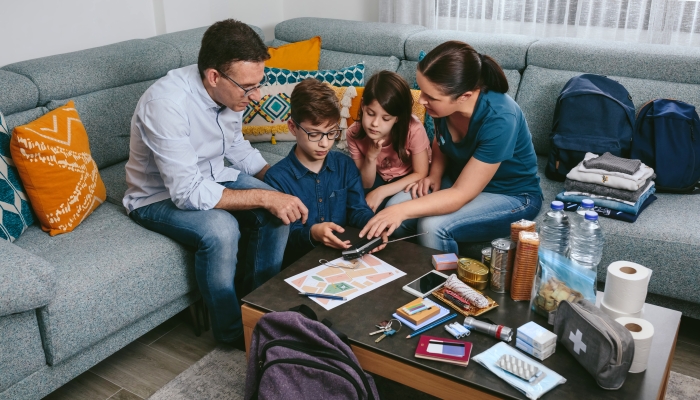
Drawing up an emergency plan allows you to think about how you would respond to an emergency situation. This enables you to determine what might happen, what you’ll need, and what might make a winter emergency more manageable for your family.
Sign up for any local government alerts so you’ll be notified as soon as possible about potential emergencies. Contact your local council to see if they hold a list of people with disabilities and, if so, ask for your family to be included. These lists ensure help goes to those needing it most during an emergency.
Speak to your local fire and police department, who will be able to help you create an emergency procedure. Request a copy of your electricity provider’s emergency plan and ensure they know you need to be a priority for getting power back on in an emergency.
Assess Your Family’s Needs
Start by identifying the specific needs of each special needs family member. Preparing for an unknown event can be challenging, but you need to cover all eventualities. In a worst-case scenario, you may be without power or help for a few days. Be sure to consider:
- Medication
- Mobility issues
- Food
- Torches and batteries
- Battery-powered radio
- Power sources
- Behavioral needs
- Communication needs
Speak to your child’s medical team about winter emergencies. They should have emergency procedures that may be relevant to your planning. They’ll know who you need to contact to receive medical help in an emergency.
Establish Emergency Procedures
As part of your special needs emergency planning, you’ll need to have an emergency plan. This plan should be clear, concise, and understood by all family members who will participate in implementing it. The plan should be written down and contain all the relevant information, such as phone numbers of relevant services and where to find the emergency kit.
If a few of you are involved in the plan, ensure everybody knows what part they are responsible for. Ensure the plan is printed, laminated, and kept in the emergency kit. It also helps to email copies to the rest of the family so everybody knows what to expect in an emergency situation.
Essential Supplies and Equipment
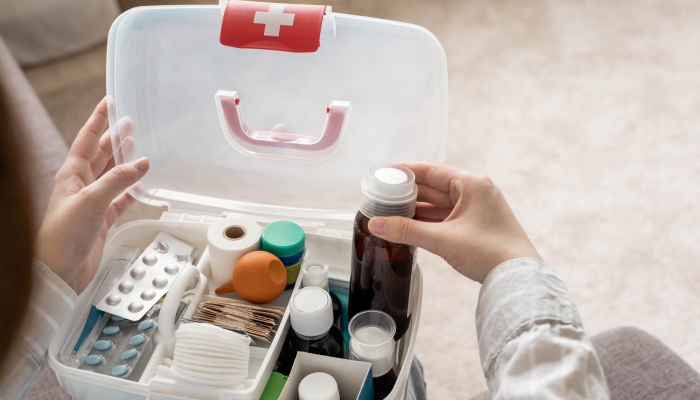
Here are some things to include in your emergency kit:
- Medications
- First aid kit
- Non-perishable food
- Drinking water
- Phone numbers for emergency contacts
- Battery chargers for phones
- Multiple layers of warm clothing
- Thermal gloves and socks to keep your hands and feet warm
Power Backup Solutions
Power outages are common during storms and weather emergencies. While power usually comes back on pretty quickly, it’s best to prepare for longer power outages. If you have medical equipment that requires electricity, you should have a backup generator fitted in your home.
It’s crucial to have a backup power source in case of emergency, and this is something you should raise with your child’s medical team. Once you have one, it’s essential to take care of it.
Ensure your backup power supply has an annual checkup so you can rely on it in an emergency.
You’ll need your phone to stay updated on local developments during the emergency and to request help from your support network if needed. Ensure you have fully charged battery chargers ready in case of emergencies. If your child uses assistive technologies, ensure you have battery chargers for these.
Communication and Support Networks
Staying up to date and in touch with your support network is also important during a winter emergency.

Stay Informed
Use local news sites, government alert websites, and social media to stay updated with developments. If communication systems go down, you’ll need a traditional battery-powered radio to listen for local radio alerts.
Use Your Support Network
It’s crucial to use your support network during times of emergency. As part of your emergency plan, you should ask a couple of members of your support network to check in on you during emergencies. Be sure to ask more than one person in case that person is unavailable when an emergency occurs.
Your support network likely includes local special needs organizations, so ensure you check in with these organizations in an emergency. They may have access to things you need, so don’t hesitate to ask for help.
Practice and Review Your Plan
Make sure you conduct an autumn audit where you look carefully at your winter emergency plan to see if any changes are necessary. Medications and equipment change, so your plan may need updating to reflect this. It’s also important to look through your emergency kit and ensure everything is present and correct.
Winter Weather Drills
As well as updating your emergency kit, it’s worth carrying out a winter weather drill. To do this, you should roleplay a bad weather situation and work through the emergency plan as a family. This will help you feel prepared should a bad weather event occur.
If your children are young or anxious, you’ll need to take care when discussing potential emergency situations with them. Rather than focusing on the dangers, perhaps focus on the solutions and the actions you are taking to protect yourselves.
Reference:
- Stough, L. M., Ducy, E. M., & Kang, D. (2017). Addressing the Needs of Children With Disabilities Experiencing Disaster or Terrorism. Current Psychiatry Reports, 19(4). https://doi.org/10.1007/s11920-017-0776-8
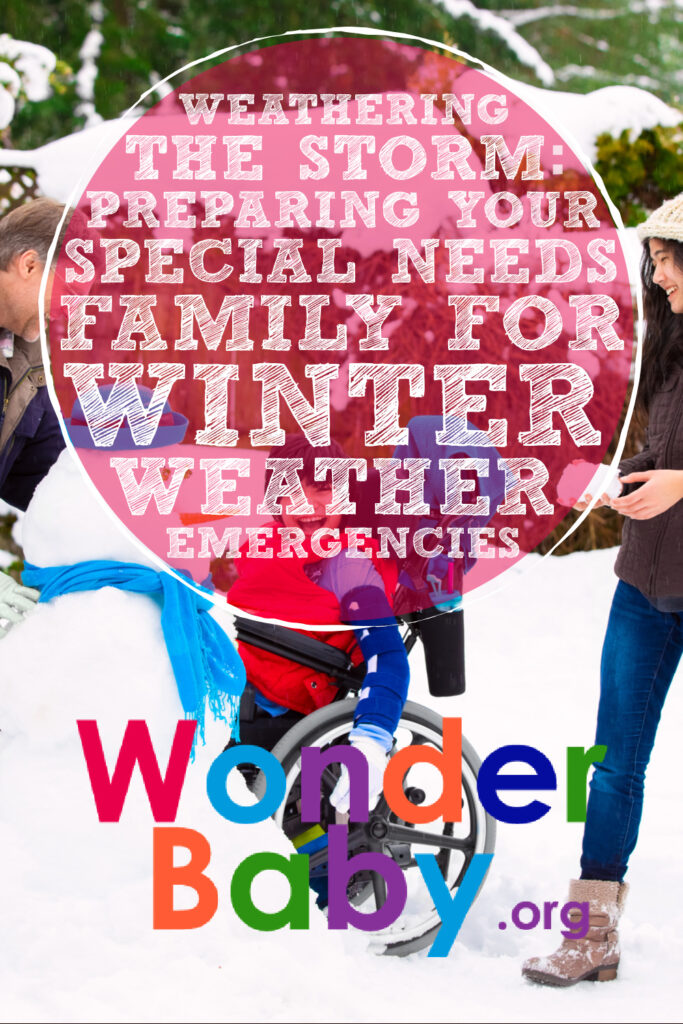
Related Posts

Eye Conditions and Syndromes, Visual Impairment
Neuralink Announces Plans to Restore Sight to the Blind with Brain Chip
Elon Musk’s company Neuralink has announced plans to begin human trials of its new “Blindsight” brain chip by the end of 2025.

Special Needs
5 Spring Cleaning Tips for Families of Children with Disabilities
Spring cleaning is an opportunity to create a more accessible, organized, and supportive space for your child with disabilities. Declutter, deep clean, and refresh!

Visual Impairment
The Gift of Understanding: How a Young Child Helps His Blind Father Navigate Life
When a parent is blind, it’s natural for people to wonder how their sighted child will adapt. Will they struggle to understand their parent’s needs? Will they feel burdened by...